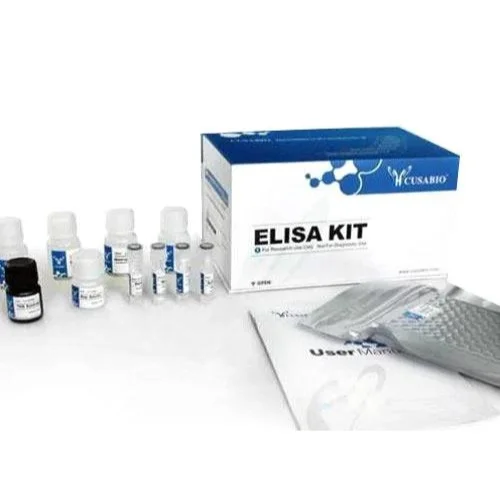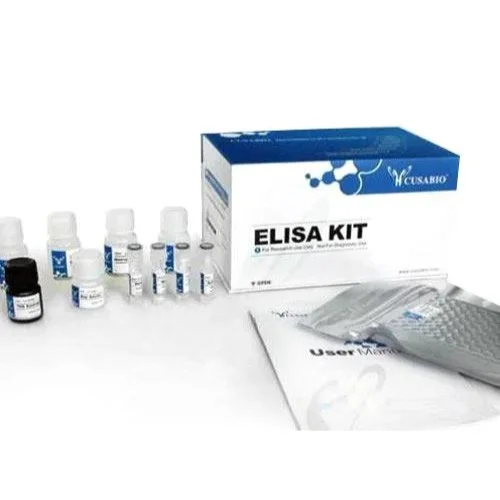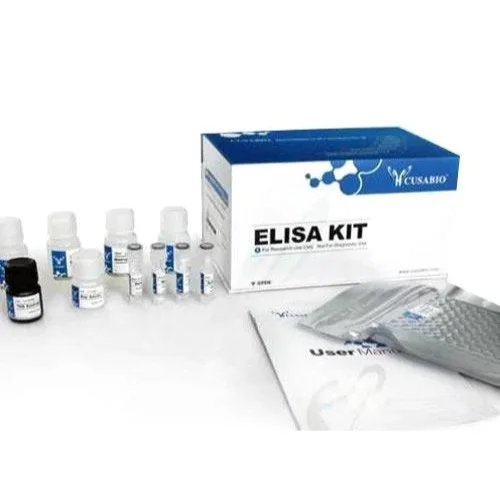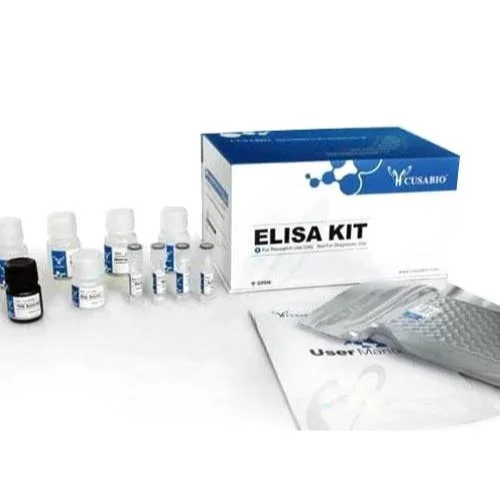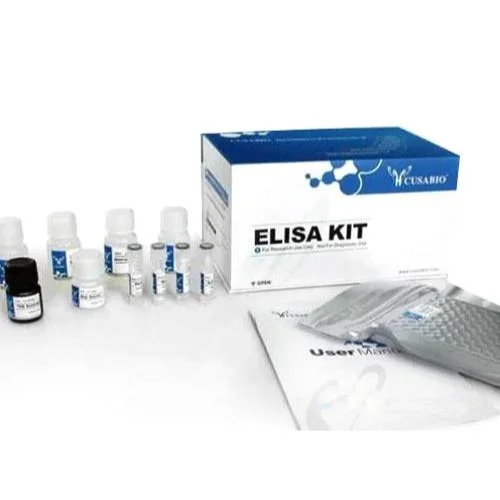Cusa Bio ELISA Kits
Cusa Bio ELISA Kits
Manufacturer: Cusabio
The human OPG ELISA Kit allows for the in vitro quantitative determination of OPG concentrations in serum, plasma, or tissue homogenates. This kit exclusively recognizes human OPG. OPG, also known as TNFRSF11B, is closely involved in bone remodeling through interaction with RANKL. OPG-RANKL interaction inhibits the maturation and activation of pre-osteoclasts by antagonizing RANK-RANKL signaling thereby suppressing osteoclast function and facilitating bone formation. Declined OPG expression or an imbalanced RANKL/OPG ratio leads to osteoporosis, periodontitis, and rheumatoid arthritis.
Manufacturer: Cusabio
This Rat Osteoprotegerin (OPG) ELISA KIT is a powerful tool for researchers in the field of cell biology,bone metabolism, bone homeostasis. This high-quality ELISA kit allows for the accurate and reliable quantification of Rat Osteoprotegerin (OPG) levels in serum, plasma, and tissue homogenates. The Rat Osteoprotegerin (OPG) ELISA KIT is designed for quick and easy detection of OPG in Rat samples. It has a wide detection range of 0.78 ng/ml to 50 ng/ml, with a sensitivity of 0.195 ng/ml.
Manufacturer: Cusabio
This Human TNFRSF1A ELISA Kit was designed for the quantitative measurement of Human TNFRSF1A protein in serum, plasma, tissue homogenates, urine. It is a Sandwich ELISA kit, its detection range is 78.125 pg/mL-5000 pg/mL and the sensitivity is 65 pg/mL.
Manufacturer: Cusabio
This Human TNFRSF1B ELISA Kit was designed for the quantitative measurement of Human TNFRSF1B protein in serum, plasma, tissue homogenates. It is a Sandwich ELISA kit, its detection range is 31.25 pg/mL-2000 pg/mL and the sensitivity is 7.8 pg/mL.
Manufacturer: Cusabio
The product CSB-E05125h is a ready-to-use microwell, strip plate ELISA kit for quantitatively analyzing the presence of TNFSF11 in different biological samples, including serum, plasma, and tissue homogenates. This TNFSF11 ELISA kit specifically recognizes the human TNFSF11 in the sample. It adopts the Sandwich ELISA technique in conjunction with antibody-antigen specific binding and an enzyme colorimetric reaction to indicate the presence of human TNFSF11 and quantitatively measure the concentration of TNFSF11 in the samples.
Manufacturer: Cusabio
The product CSB-E05127m is a sandwich ELISA kit developed to measure levels of mouse soluble receptor activator of nuclear factor-kB ligand (sRANKL) in serum, plasma, cell culture supernates, or tissue homogenates. The enzyme-substrate chromogenic reaction is also used to amplify the signal and quantify the levels of the analyte through the intensity of the colored product. The color intensity positively correlates with the amount of sRANKL bound in the initial step.
Manufacturer: Cusabio
The Rat soluble receptor activator of nuclear factor-kB ligand (sRANKL) ELISA Kit is a powerful tool for quantitative analysis of the Receptor activator of nuclear factor-kB ligand (Tumor necrosis factor ligand superfamily member 11 protein) in rat samples. This ELISA kit is specifically designed for the measurement of sRANKL protein levels in a variety of sample types, including serum, plasma, and cell culture supernates from Rattus norvegicus (Rat) species. With a detection range of 62.5 pg/mL to 4000 pg/mL and a sensitivity of 15.6 pg/mL, this ELISA kit can accurately detect even low levels of sRANKL protein.
Manufacturer: Cusabio
CUSABIO's human BAFF ELISA kit is an in vitro enzyme-linked immunosorbent assay for quantitatively measuring human BAFF in serum, plasma, or tissue homogenates. This assay uses the sandwich enzyme immunoassay technique in combination with the enzyme-substrate chromogenic reaction to quantify the analyte in the sample. The color develops positively to the amount of BAFF in samples. The color intensity is measured at 450 nm via a microplate reader. BAFF, encoded by the TNFSF13B gene, is a ligand for BAFFR that is required for peripheral B-cell survival and homeostasis.
Manufacturer: Cusabio
CUSABIO's mouse TNFSF14 ELISA kit is an in vitro enzyme-linked immunosorbent assay for the quantitative measurement of mouse TNFSF14 in serum, plasma, or tissue homogenates. This assay uses the sandwich enzyme immunoassay technique in combination with the enzyme-substrate chromogenic reaction to quantify the analyte in the sample. The color develops positively to the amount of TNFSF14 in samples. The color intensity is measured at 450 nm via a microplate reader.

